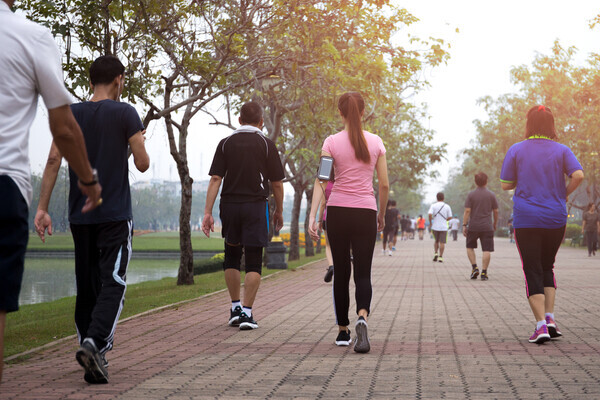
New research from Australia's University of Sydney suggests that the intensity of daily walking is as crucial as the number of steps taken in reducing the risk of cardiovascular disease. A study published in the European Journal of Preventive Cardiology tracked over 36,000 individuals with hypertension for nearly eight years, offering new insights into physical activity recommendations.
The findings challenge the common "10,000 steps per day" guideline, demonstrating that significant health benefits can be achieved with fewer steps if combined with a faster pace. The study found that for hypertension patients, an increase of just 1,000 steps a day beyond a baseline of 2,300 steps was associated with a 17% reduction in the risk of major adverse cardiovascular events (MACE), which includes heart attack, heart failure, and stroke.
Professor Emmanuel Stamatakis, the study's lead author, highlighted the importance of a dose-response relationship, stating that this research provides a clear link between increasing physical activity and lowered cardiovascular risk. He noted that even a modest increase in walking could have a substantial impact on health outcomes.
Furthermore, the study emphasized the role of walking speed. Participants who maintained a brisk pace of 80 steps per minute for their fastest 30 minutes of walking per day saw their MACE risk drop by 30%. The data also indicated that even faster speeds, exceeding 130 steps per minute, were not associated with any negative health consequences, reinforcing the safety and efficacy of high-intensity walking.
The research also extended its analysis to a control group of over 37,000 healthy individuals without high blood pressure, revealing a consistent trend. In this group, each additional 1,000 steps per day led to an average 20.2% reduction in MACE risk.
This study provides a strong rationale for healthcare professionals to advise their patients, especially those with high blood pressure, to not only increase their daily step count but also to incorporate higher-intensity walking into their routines. The findings underscore that a combination of step volume and intensity is a powerful, non-pharmacological strategy for preventing cardiovascular disease.
[Copyright (c) Global Economic Times. All Rights Reserved.]




























